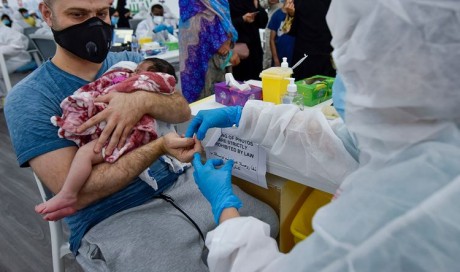Under the kafala regime, workers are forced to remain with their employers for the duration of their time in the country and are unable to change employers or leave without the express permission of employers. About 600,000 domestic workers live in Kuwait, most of whom are from Africa and Asia, with Filipino nationals accounting for about 250,000 workers and residents according to Manila’s figures. Approximately 120 Filipino workers died last year, most due to what authorities claim was suicide.
According to a Human Rights Watch report on the country:
MIGRANT WORKERS REMAIN VULNERABLE TO ABUSE, FORCED LABOR, AND DEPORTATION FOR MINOR INFRACTIONS INCLUDING TRAFFIC VIOLATIONS AND ‘ABSCONDING’ FROM AN EMPLOYER.”
Last April, a horrifying video went viral. The video, shot by a Kuwaiti woman, showed her Ethiopian maid dangling helplessly from the balcony. As the woman filmed, she mocked the maid, who then fell seven stories down and miraculously survived. While the woman was later arrested for failing to assist her desperate maid, such abusive employers rarely see their day in court.
The legal changes Alqattan complained about largely resulted from the brutal death of Filipina maid Joanna Demafelis, whose body was discovered in her employer’s freezer last February, a year after she went missing. The murder of the 29-year-old woman, which entailed strangulation and torture, provoked a major diplomatic crisis with the Philippine government, which temporarily banned work in the country.
“The situation of Demafelis is actually a common story and every domestic worker relates to what has happened to her,” Hernando noted.
Sexual violence happens with alarming regularity, yet victims often conceal these experiences from their loved ones due to the painful nature of the ordeal. Many domestic workers also return to their home countries with severe mental illness.g to the families of migrant workers but poverty and continued desperation to work even as a slave in the foreign lands.”
Share This Post














